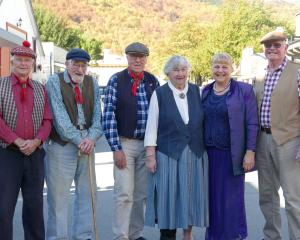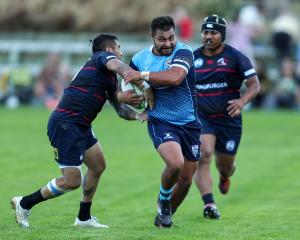
It was 1861 when the name "Maori Jack" engraved itself in the history of the Wakatipu, following an act of heroism on Lake Wakatipu.
The story has it Maori Jack accompanied early runholder Mr Rodgers and Mr Mitchell, a recent British arrival who had served as an officer in the 42nd Highland's Regiment, on to Lake Wakatipu.
Part way across the lake the boat was struck by a violent squall and capsized.
Jack supported Mr Mitchell who, unable to swim, was clinging to the upturned keel, while Mr Rodgers attempted to reach the shore.
Mr Rodgers was unsuccessful, and returned to find Jack swimming after Mr Mitchell, who had lost his grip and was drifting away.
Mr Rodgers died a short time later and Jack, scared he could not continue to support Mr Mitchell, dived under the boat, cut away the halyards of the mast, pulled the mast free and managed to right the boat.
He then paddled to the shore, carried an unconscious Mr Mitchell to high ground before wrapping him in wet blankets and ferns and setting off for help.
Maori Jack was acknowledged by the Wakatipu community with a dray and team of bullocks, while Mr Mitchell gave him a silver hunting watch.
He was also presented with a medal from the Humane Society of Britain.
The following year, Maori Jack discovered gold in the Arrow River, but was sworn to secrecy by his employer, William Rees, who wanted to avoid a gold rush until he had completed shearing.
However, it wasn't long before news of gold in the Arrow River spread, and Maori Jack became responsible for changing the Wakatipu from a pastoral area to a gold-mining settlement and one of the world's richest sources of alluvial gold.
It is also Maori Jack who is acknowledged in the naming of the multimillion-dollar Jacks Point development, on the shore of Lake Wakatipu.
In 1897, Bruce Bay Maori talked of "Big Jack" who had saved a man on Lake Wakatipu and, until very recently, that was the last known sighting.
Mr Clark said Jack's medal was discovered a couple of years ago by a woman living in the West Coast, who had "no idea" why it was in her family.
"It's been an interesting wee story. She looked part Maori, but had no knowledge of how it had been passed down. It was in a box, well protected and looked like it was an heirloom.
"I wanted to know more about Maori Jack . . .when the medal was uncovered there was a bit of interest [nationally]."
Part of the difficulty had been the number of aliases Maori Jack had. He was originally from Thames and known as Hatini Whini, Anthony Whiti and Jack Tewa.
But it appeared he talked often of the Lake Wakatipu rescue which helped uncover the most recent information on him.
"I contacted Julia Bradshaw at Shanty Town on the West Coast and she had found reference to the fact that he was helping [in] Haast and he was mentioned in a local newspaper as a large Maori guy who had rescued someone on Lake Wakatipu, so it had to be him."
Another newspaper article was discovered recently, this time reporting a court case involving a Maori man who "smacked someone over the head with a shovel".
The name it reported was not among Maori Jack's previously known aliases, but Mr Clark said the court report stated the man was initially sentenced to two years' imprisonment.
That was reduced to two months after he spoke of rescuing a man on Lake Wakatipu and receiving a medal for his bravery.
Mr Clark said there were three questions remaining about Maori Jack and he suspected the answers lay in the West Coast.
"Where did he go, where did he die and where is he buried? I would love to know."












